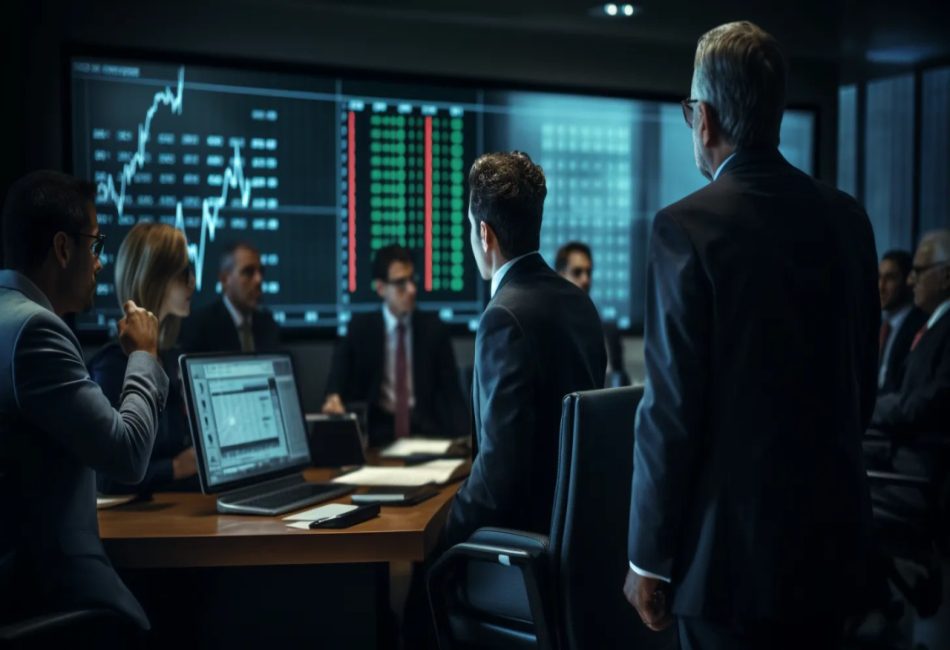Trading has long been viewed as a lonely pursuit—filled with self-reliance, high risk, and emotional ups and downs navigated behind closed doors. But this landscape is evolving. We will explore how prop firm trading is changing the dynamic for those who want to trade seriously but don’t want to risk their savings or feel isolated. These firms are introducing a model that is less about guessing and more about performance within boundaries. Rather than building up capital over the years to gain access to more significant trades, traders now have an alternate route through proprietary firms that offer funding based on skill and discipline. This allows many to move from small, frustrating retail accounts into environments where profit potential grows with their consistency. It also reframes trading as a profession instead of a gamble. As more people discover this model, prop firm trading is becoming more than an opportunity—it’s a mindset shift in how people approach the markets.
Why Trading Is Evolving Beyond Solo Accounts
- Learning Through Constraints Instead of Chaos
One of the most overlooked advantages of prop firm trading is how it forces structure. Many retail traders begin their journey with minimal guidance, hopping between strategies and risking more than they can afford in search of fast success. Prop firms interrupt that pattern by enforcing clear risk parameters—daily loss limits, maximum drawdowns, and profit targets—that demand focus and consistency. These boundaries might initially feel restrictive, but they become a framework for learning the most critical elements of successful trading: risk management, patience, and rule-following. The irony is that traders often become more confident in their systems by removing the freedom to act impulsively. They stop trading emotionally and start executing logically. The evaluation phase at a funded futures prop firm often acts as a filter for these lessons. Even traders who fail the challenge frequently walk away with a deeper understanding of their habits and how to refine their approach. The process isn’t just about getting funded—it’s about gaining discipline.
- Trading Becomes a Process, Not a Performance
Prop firm trading turns attention away from quick wins and toward repeatable methods. While retail trading often tempts people with the idea of hitting a big trade and walking away, the structure of a prop firm forces a shift in perspective. Instead of focusing on single moments of success, traders are encouraged to repeatedly develop systems they can use. It’s this consistency that prop firms’ reward, often scaling accounts or increasing profit splits as performance stabilizes. This process-based approach removes the pressure of risking personal funds and chasing big days. Instead, it teaches traders to stay level—avoiding overconfidence during winning streaks and panic during losing periods. The rhythm of daily, calm execution starts to matter more than the outcome of any one trade. Over time, this creates a trader who is less reactive and more resilient, with a mindset built around long-term stability instead of short-term emotion.
- Emotional Control Through External Accountability
The psychological demands of trading are often underestimated. The highs of wins and lows of losses can quickly create volatility in behavior that mirrors the volatility on the screen. Prop firm trading introduces external accountability that many solo traders lack. Knowing that inevitable mistakes will disqualify them from funding forces traders to pause, reassess, and adhere to plans. This sense of responsibility creates internal changes as well. Traders begin to track more, review more, and question their impulses before acting. They become aware not just of their strategies but of their emotions in real-time. Over time, this feedback loop becomes a form of emotional training—replacing reactive behavior with calm evaluation. The structure imposed by the firm essentially becomes a training ground for mental discipline. Far from being restrictive, this environment often provides the psychological edge that traders struggle to develop independently. With it, trading stops being a source of stress and starts feeling more like a controlled challenge.
- Sustainability Over Flashy Results
Prop firms rarely reward overnight success. Instead, their systems are built to highlight those who can manage risk, trade consistently, and recover from setbacks. This naturally attracts traders who are thinking beyond short-term gains. The goal shifts from trying to get rich quickly to building a career or long-term side income. Sustainability becomes the core focus—what trades can you repeat, what conditions do you thrive in, and how well can you follow a plan? For many, this is the first time they think of trading as a lifestyle rather than a lottery. The support of rules, systems, and sometimes even a community reinforces this mindset. Traders are encouraged to trade less frequently, wait for clearer setups, and protect their equity—behaviors that lead to greater market longevity. This sustainable approach is what ultimately sets prop firm traders apart. They’re not looking to impress anyone with one great trade—they aim to build consistency over months and years.
Prop firm trading is more than just a way to access capital—it’s a way to change how people approach trading. With structure, accountability, and removing personal financial risk, traders can focus on developing real skills instead of chasing luck. The prop firm path rewards patience, clarity, and process over emotion and reaction. It forces a kind of maturity that many traders don’t reach alone. In doing so, it prepares them not only to trade larger accounts but to do so with a level of responsibility that supports long-term success. For anyone frustrated with the volatility of retail trading or feeling stuck on a small scale, this model offers a more stable and empowering route forward. It doesn’t promise instant success, but it creates a framework where consistent growth is possible and measurable. In the ever-changing world of trading, that kind of steady ground is something more traders are starting to value above all else.
